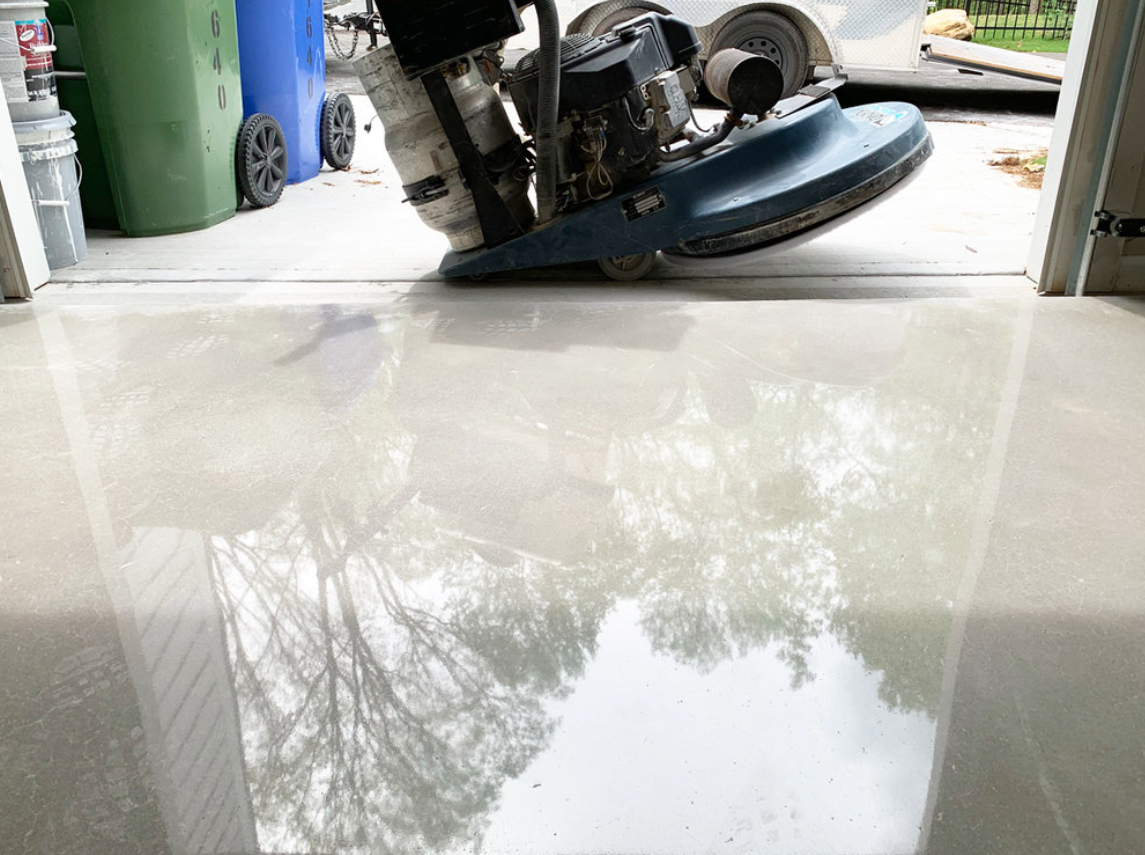
Concrete floors are a popular choice for many types of buildings due to their durability and low maintenance. However, over time, even the toughest concrete surfaces can become dull and worn down. This is where the process of polishing comes in. Polishing concrete floors involves using special machinery and techniques to buff away any imperfections and create a glossy finish.
Table of Contents
Can You Polish Any Kind of Concrete Floor?
The answer to the question “Can you polish any kind of concrete floor?” is not a simple yes or no. While concrete polishing is a versatile process, the suitability of a concrete floor for polishing depends on several factors. These factors include the age and condition of the floor, its hardness, the size and exposure of aggregates, the surface flatness, and the presence of any existing coatings or treatments.
Assessing the Condition of the Concrete Floor
Before considering polishing a concrete floor, it is crucial to assess its condition. Polishing can only be done on structurally sound concrete surfaces that are free from major cracks, spalling, or other significant damage. If the floor is severely damaged, it may require repair or resurfacing before the polishing process can be undertaken. It is essential to thoroughly examine the floor’s condition and consult with a professional to determine its suitability for polishing.
Understanding the Concrete Mix
The type of concrete mix used in the ton floor is an important factor in determining its polishability. Traditional gray concrete is the most common type, and it generally responds well to the polishing process. However, other types of concrete mixes, such as those with added aggregates or pigments, may pose challenges. Aggregates like large stones or glass chips can interfere with the polishing process and affect the final result. Similarly, certain pigments or dyes used in colored concrete may not react well to the grinding and polishing process, leading to uneven color distribution. It is advisable to consult with a concrete professional to determine the compatibility of the concrete mix with the polishing process.
Considering the Age of the Concrete
Freshly poured concrete needs time to cure and achieve its full strength before it can be polished. The curing process usually takes around 28 days, although it can vary depending on factors such as temperature and humidity. Attempting to polish concrete that is not fully cured can lead to undesirable outcomes, including surface defects and reduced durability. Patience is key when it comes to polishing concrete, and it is essential to allow sufficient curing time before undertaking the process.
Surface Contaminants and Coatings
Surface contaminants and coatings present on the concrete floor can also affect its suitability for polishing. If the floor has been previously coated with paint, epoxy, or any other type of sealant, it may need to be removed before polishing can take place. The presence of oils, adhesives, or other contaminants on the surface can also hinder the polishing process and compromise the final result. Proper surface preparation, which may include cleaning, stripping, or grinding, is crucial to ensure optimal results during the polishing process.
Managing Expectations
It is important to note that not all concrete floors are suitable for a high-gloss polished finish. Some floors may have inherent characteristics or imperfections that are not conducive to a mirror-like shine. For instance, floors with a high level of aggregate exposure may result in a more textured appearance even after polishing. This may be desired in some cases, as it can add a unique and rustic charm to the floor. It is essential to manage expectations and understand the limitations of the concrete floor before embarking on the polishing process.
Conclusion
In conclusion, while concrete polishing is a versatile and transformative process, not all concrete floors are suitable for polishing. Factors such as age, condition, hardness, aggregate size, surface flatness, and existing coatings all influence the feasibility and outcome of the polishing process. It is advisable to consult with a professional concrete polishing contractor who can assess the specific characteristics of your floor and provide expert guidance.








